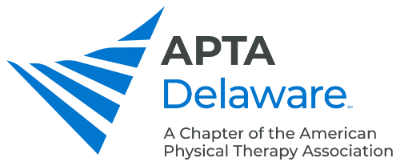Though there are plenty of political distractions out there, some members of the Senate have not forgotten about problems with the so-called “Stark law” intended to counter abuses of physician self-referral. At a hearing of the Senate Finance Committee this week, legislators talked about how certain provisions of the law, including exceptions that allow for self-referral to physical therapy, may not be in the best interests of Medicare’s shift to value-based models.
The hearing (viewable here) was called by chair Orrin Hatch (R-Utah) to look at the entire breadth of the Stark law, which he characterized as “the embodiment of good intentions muddled with complex execution.” That law prohibits physicians from referring Medicare patients for services or facilities in which the physician has a financial interest, but it contains a loophole for referrals for “in-office ancillary services” (IOAS)—physical therapy, anatomic pathology, radiation oncology, and advanced diagnostic imaging. APTA has long advocated for the elimination of this loophole.
The bulk of the hearing focused on the big-picture issues associated with the law, particularly around the ways it might be unintentionally impeding the development of value-based health care models that call for greater integration of services. Though not a major focus of the hearing, the IOAS exception was mentioned in testimony, and characterized by all 3 witnesses as 1 of the more “contentious” issues in the law.
“Many stakeholders have singled out the IOAS exception as 1 of the most abused in the law, because it ultimately promotes the very conduct that the Stark law was intended to prevent—overutilization of services and unnecessary self-referrals of health care services,” said Troy Barsky, an attorney representing the American Society for Radiation Oncology, in written remarks.
While Barsky had recommendations for possible limits on the exceptions, he acknowledged that Congress would need to provide the Centers for Medicare and Medicaid Services with additional authority before any major reforms could be accomplished. Still, he argued, adjustments could be made that “would stop the increasing rate of unnecessary utilization due to IOAS and promote value-focused arrangements among providers.”
Elimination of the IOAS exceptions remains a central public policy priority of APTA, which is a member of the Alliance for Integrity in Medicare, a coalition of organizations that has been advocating for closing the loophole. APTA submitted comments to the Senate Finance and House Ways and Means committees in early 2016, and provided a separate set of comments specific to this week’s hearing, writing that “care furnished under the IOAS exception is often degraded, raising serious quality concerns.”
The IOAS exemptions are also the subject of possible discussion in the House of Representatives, where Rep Jackie Speier (D-CA14) reintroduced the “Promoting Integrity in Medicare Act,” a bill that would end the IOAS loopholes.
According to various news reports, Hatch has stated that he hopes to see legislative action on the Stark Law by the end of this year. It’s unclear if that action would include changes to the IOAS exceptions.
